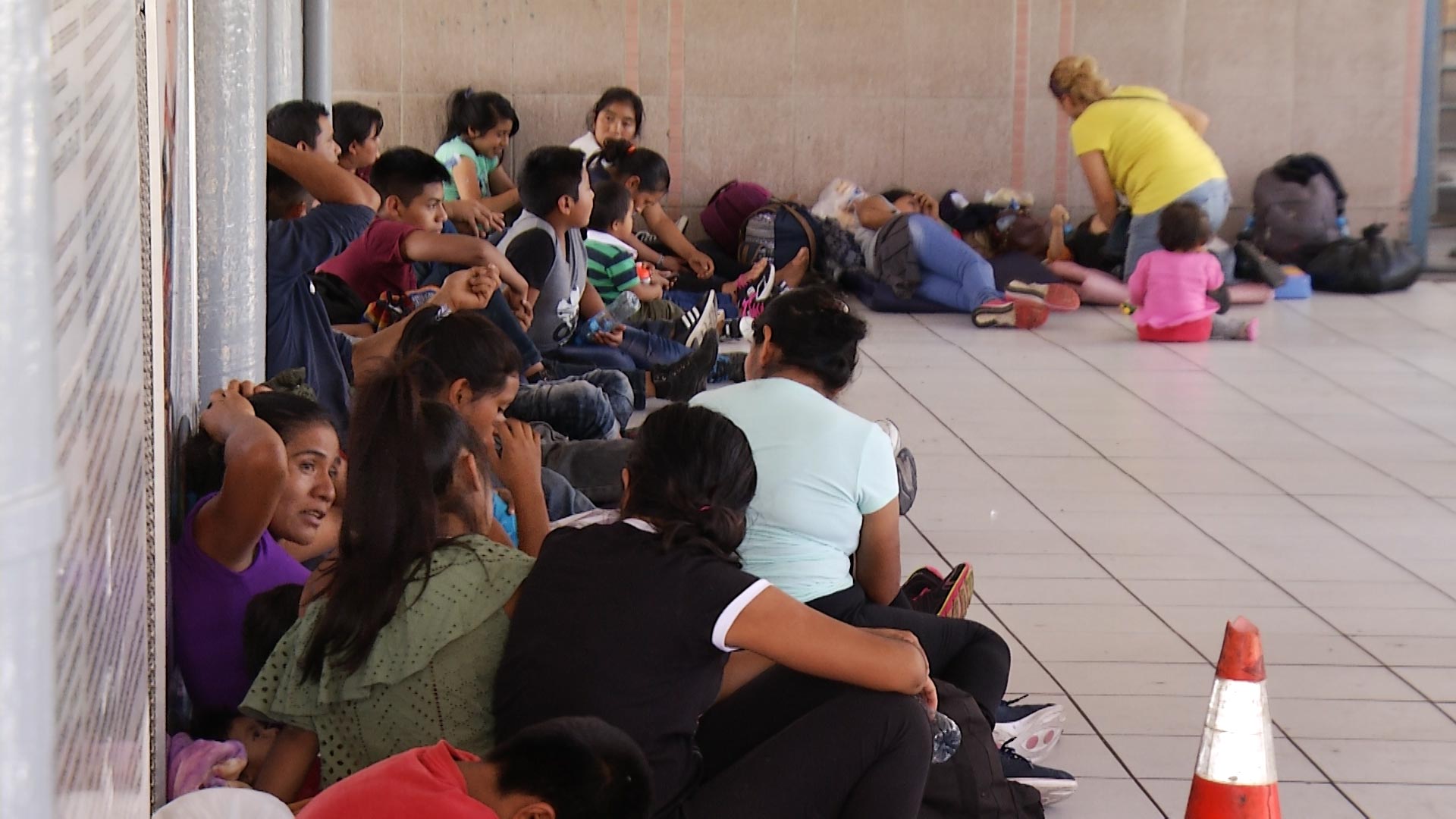 Families seeking asylum await processing outside the port of entry in Nogales, Sonora, on Sept. 4, 2018.
Families seeking asylum await processing outside the port of entry in Nogales, Sonora, on Sept. 4, 2018.
HOUSTON — A federal appeals court's ruling Friday will allow the Trump administration to begin rejecting asylum at some parts of the U.S.-Mexico border for migrants who arrived after transiting through a third country.
The ruling from the 9th U.S. Circuit Court of Appeals limited a lower court's order against President Donald Trump's policy to California and Arizona. Under the ruling, U.S. District Judge Jon Tigar's July 24 order won't apply to New Mexico or Texas.
The two busiest areas for border crossings are in South Texas' Rio Grande Valley and the region around El Paso, Texas, which includes New Mexico. About 46,500 people in July crossed the U.S. border without permission in those two regions, according to the U.S. Border Patrol.
The policy would deny asylum to anyone who passes through another country on the way to the U.S. without seeking protection there. Most crossing the southern border are Central Americans fleeing violence and poverty, who would largely be ineligible. The policy would also apply to people from Africa, Asia, and South America who come to the southern border to request asylum.
If the policy is implemented, ineligible migrants who cross in New Mexico and Texas could be detained and more quickly deported. The U.S. Department of Homeland Security did not immediately respond to a request for comment Friday.
Under American law, people can request asylum when they arrive in the U.S. regardless of how they enter. The law makes an exception for those who have come through a country considered to be "safe" pursuant to an agreement between the U.S. and that country.
Canada and the U.S. have a "safe third country" agreement. But the U.S. doesn't have one with Mexico or countries in Central America. The Trump administration has tried to sign one with Guatemala, but the country's incoming president said this week that Guatemala would not be able to uphold a tentative deal reached by his predecessor.
The U.S. government is already turning away many asylum seekers at the southern border.
About 30,000 people have been returned to Mexico to await asylum hearings under the government's Migrant Protection Protocols program. Tens of thousands of others are waiting in shelters and camps to present themselves to U.S. border agents at official ports of entry that have limited how many asylum seekers they will process daily.
Mexico's asylum system is itself overwhelmed, and there are widespread reports of migrants being subjected to attacks and extortion. Border cities across from New Mexico and Texas include Juarez, Nuevo Laredo, and Reynosa, all of which are well-known for their violence and gang presence.
Tigar had ruled the policy could expose migrants to violence and abuse, deny their rights under international law and return them to countries they were fleeing.
The appeals court ruled that Tigar hadn't considered whether a nationwide order was necessary and that the "limited record" shows that it wasn't.
Judges Mark Bennett and Milan Smith voted to limit Tigar's order. Judge A. Wallace Tashima dissented.
Tigar is a nominee of former President Barack Obama. Smith was nominated by former President George W. Bush and Bennett by Trump, while Tashima was nominated by former President Bill Clinton.
The American Civil Liberties Union and other legal groups had sued the Trump administration after it announced the restrictions last month.
"We will continue fighting to end the ban entirely and permanently," said Lee Gelernt, a lawyer for the ACLU.
The U.S. Department of Justice did not immediately comment.

By submitting your comments, you hereby give AZPM the right to post your comments and potentially use them in any other form of media operated by this institution.